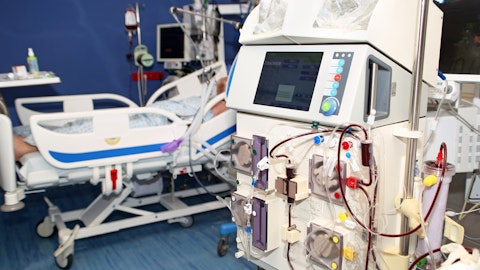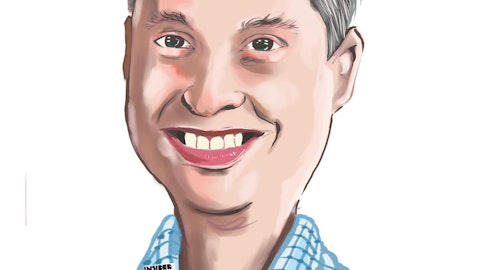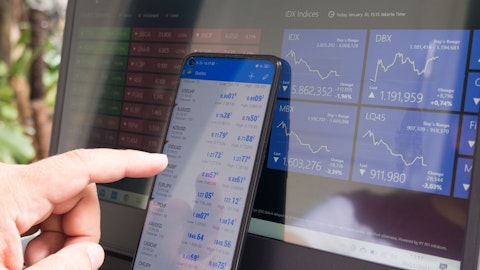Elias Zerhouni: You’re talking about the patient service centers? I could hear your question.
Jeffrey Cohen: Yes.
Elias Zerhouni: Okay. So what we did, we did a full analysis of the return on investment, if you will, of each PSC as a system. And what we found is that there are some that really were not either located in the optimal position, some that when you looked at the totality of the revenue and expenses needed to be displaced or closed. And then we opened 11 ones in very promising locations that really attract not just our own clients, but also a volume that we’re starting to see whereby you can do what I think our minimum productivity requires, which is 50 to 60 draws a day. With the increase in reimbursement for draws, as you know, we expect then that investment, if you will, and redeployment to be very positive to the revenue line.
Jeffrey Cohen: Okay. Got it. And then could you talk a little bit more about the OnkoSight testing? And how are the payers and the money flows on that?
Elias Zerhouni: So the team at GenPath did an excellent job with their approach to the full gene sequencing. And so they are able to do all the 525 tests in 1 run. And the turnaround time that is basically industry best with 3 to 5 days. But as you know, the CPT codes are specific to each — 1 type of cancer that the patient may have, breast cancer or colon cancer. And so typically, the oncologist — the treating oncologist requires to reduce that. However, as the patient goes on, first line, second line and so on, there may be a need for readjusting the therapy, understanding maybe what other pathways are really active in that tumor, whether it be liquid tumor or solid tumor. So the there is a demand for going back in 2 areas.
One is understanding better the biology of the cancer; and two, figuring out if there is minimal residual disease or not. So we developed 2 approaches. One is to say — and we have the software for it to look back at the whole set, 525 and inform the oncologist for that particular patient. But what we found is that the highest demand is really for clinical trials in oncology by large oncology practices like U.S. oncology and others. We say we want to participate in trials, but we want to know what are the gene , the genetic abnormalities that the pharma companies or the biotech companies are looking for. And so many, many therapies today are developed as a function of the genetic makeup of the cancer that the patient harbors. And this is what we put in place.
And now we are going to launch the minimal residual disease test, which will complement our full offering to oncology. I hope that’s clear.
Jeffrey Cohen: Yes, that’s very helpful. And then lastly, I heard a comment about March 20, the complete portfolio analysis. What will that be? And where will that be?
Elias Zerhouni: I’ll let Gary respond, he’s preparing there.
Gary Nabel: Yes. This is Gary Nabel. And we are planning to have the R&D Day as a virtual event. It will be on March 20 at 4 in the afternoon, and we’ll be providing the specifics in terms of logging in. At that time, what you’ll hear is you’ll hear about the evolving portfolio, starting with the multi-specific antibodies, their applications to solid tumors, liquid tumors. We also will cover the infectious disease portfolio, HIV, SARS-CoV-2 and in addition to that, some work on other emerging pathogens. And then finally, as Elias described, the EBV vaccine, what the status is of the programs and what the prospects are for the future. So we’re really looking forward to sharing our excitement about the portfolio and really the advantages that our new technologies offer for a variety of diseases.





